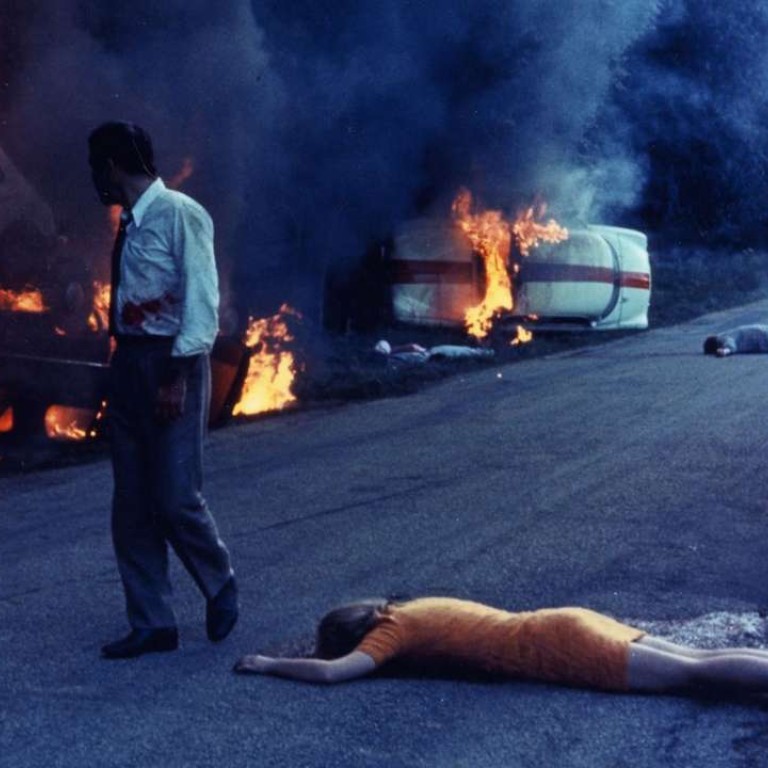
Flashback: Weekend – Jean-Luc Godard’s assault on bourgeois values from 1967
Godard’s incendiary, nihilistic work doesn’t concern itself with narrative but, for those willing to invest the effort, it’s a rewarding, stimulating excursion
Sexual perversity, cannibalistic revolutionaries, random gun violence – it’s all there in Weekend, Jean-Luc Godard’s 1967 assault on bourgeois values. Like the French director’s other films, this is more concerned with ideas and concepts than narrative and story. Although it’s more accessible than the difficult political essays, such as Joy of Learning (1969) and Number Two (1975), that followed, it’s still a demanding watch.
Those looking for an adventurous night’s viewing will nevertheless find it both edifying and intellectually stimulating. Weekend is chock-a-block with thoughts and observations, but it mainly concerns itself with three ideas close to the heart of the 1960s generation: materialist lifestyles, class politics and violent revolution.
Although Godard’s Marxist views had become explicit in his previous movie, La Chinoise (also 1967), Weekend is more a work of nihilism, as it takes a sledgehammer to the bourgeois view of society without suggesting any alternatives. But the main takeaway from the movie is more anthropological than political – that humankind is a brutal, self-serving species whose violent nature is only kept in check by the social constructs we place upon ourselves.
The film sees a mean, unpleasant bourgeois couple, Corinne (Mireille Darc) and Roland (Jean Yanne), set out on a drive to Corinne’s mother’s home one weekend, intending to trick her out of her inheritance. If their plan doesn’t work, the couple will kill her. Along the way, they ignore the dead car crash victims who litter the roads and insult historical figures such as Emily Brontë. Their final encounter is with a group of cannibalistic revolutionaries called the Seine-et-Oise Liberation Front.

The casting was interesting back in 1967, as Darc and Yanne were mainstream actors who generally worked in commercial films. According to filmmaker Claude Miller, who worked as assistant director on Weekend, Godard disliked Darc, an actress who he felt embodied all the elements of cinema that he was rebelling against. Consequently, says Miller, Godard maliciously invented difficult scenes for her.
In an interview, Darc said that she didn’t mind suffering in the pursuit of art and had expected such treatment from Godard. Yanne didn’t escape unscathed, as Godard asked the actor to immerse himself in a sewage-filled river. When Yanne looked reticent, Godard jumped into the river himself.
The last title reads “The end of cinema” rather than simply “the end”, signifying that Godard was finished with making films in the traditional way. The director spent much of the next 10 years making Marxist-Leninist tracts that were intended to frustrate and annoy his audience, who he felt had become too bourgeois themselves.
